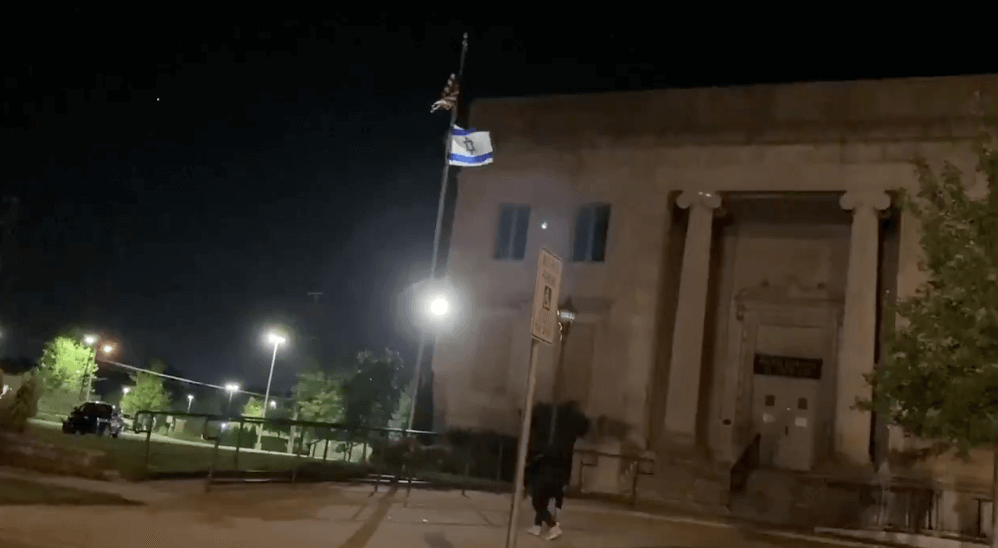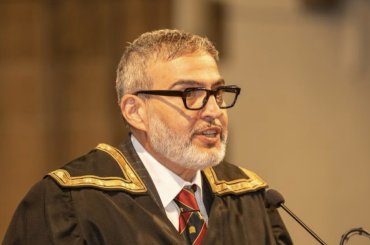Countless false accusations of antisemitism hurled at Palestinians and supporters of justice in Palestine are part of an extremely well-resourced propaganda campaign designed to thwart the movement for justice and to harass, intimidate, and destroy the lives and careers of those who do not stand with the Israeli state. From Palestinian professors and others who support Palestinian justice losing their tenure battles due to these attacks; to students being placed on hit lists intended to alert future employers of their “antisemitism;” to legislation designed to make support for Palestinian rights a crime, this war is being waged with ruthless intention.
With this reality, there is even greater urgency and responsibility for those of us in progressive Jewish communities to consider our words and actions very deeply before making accusations of antisemitism. For better or for worse (I think for worse), our accusations carry a lot of weight.
I am concerned that progressive Jews, in an attempt to show that we, too, care about antisemitism are tripping over each other to call out antisemitism and, by doing so, are falling into an attack mode that falls prey to some of the same anti-Palestinian ideology that the pro-Israel crowd is promoting. To be perfectly clear, I am not referring to the importance of addressing antisemitism, which we know has been on the rise. But antisemitism and acts of anti-Jewish violence are markedly different from criticisms, including extremely severe ones, of the Israeli state or opposition to Zionism, which are all too often misidentified as antisemitism. We must be acutely conscious of the tremendous harm done when progressive Jews use some of the same framing as does Israel’s hasbara (propaganda) industry and when we irresponsibly and sloppily declare what is and isn’t antisemitism.
In one recent example, after someone spray painted Free Palestine under an Israeli flag flying outside a synagogue, a video showing the spray painted message, the flag, and the synagogue accompanied a tweet: “Someone from the BLM crowd spray-painted “Free Palestine” in the driveway of the Beth Hillel Temple in Kenosha.” IfNotNow, a progressive Jewish group, then re-tweeted the video and said in response: “Spraying this on a synagogue implies that all Jews and Israel are the same — which is antisemitic — or that all Jews support Israel (factually incorrect). When antisemitism shows up on the left, it’s our responsibility to educate our comrades and hold them accountable.”
The spray painters were accused of conflating all Jews and Israel presumably because the spray painting was done at a synagogue. But the spray painting took place under an Israeli flag, that is, a nationalist symbol of apartheid. It was this action that led IfNotNow to state publicly that it had to hold the spray painters accountable.
The tweet not only seems to reflect a lack of consciousness of what the Israeli flag being prominently displayed means for Palestinians, but, at a critical moment of resistance against anti-Black racism, the group made a choice to center antisemitism.
(After a lot of critical feedback, the group apologized for the “ways in which our tweet’s phrasing fell short” and for taking away focus from anti-Black racism though they did not apologize for the accusation of antisemitism.)
Professor Steven Salaita summarized the impact of these false accusations best after he was recklessly accused of antisemitism by Rabbi Jill Jacobs, a self-identified progressive rabbi. He wrote: “Sloppy accusations of anti-Semitism betray visceral attachment to a country performing violence rather than empathy for those on its receiving end. The sloppiness is therefore doubly toxic.”
In these cases, Jews that consider themselves progressive felt comfortable impugning individual acts or statements of resistance to Israeli brutality as antisemitism. Accusations of antisemitism coming from Jews carry tremendous weight with it. That is a fact. The voices of a progressive Jewish group and a Jewish religious leader accusing BLM activists and a Palestinian activist/scholar, respectively, of antisemitism, is quite an assertion of power whose consequences, particularly in the backdrop of an ongoing massive propaganda campaign designed to destroy the Palestinian movement for justice, are even more potentially damaging.
As part of this propaganda campaign, the attacks coming from a wide range of main-stream Jewish organizations are also wrapped in a very commonly heard refrain that nobody understands antisemitism, that we have to teach the “non-Jews” not to be antisemitic, and that there is particularly a lot of antisemitism on the Left (often promoting the view that criticizing Israel or Zionism is antisemitic). While it may not be rooted in the same motivation as the more mainstream groups, some progressive Jewish groups also put forth this notion that nobody really understands antisemitism and that, while there is definitely much more antisemitism on the Right, the Left doesn’t take it seriously enough. What is different in the case of antisemitism is that there is a major campaign accusing human rights activists of antisemitism. Even if not intended, this sloppy framing of “Left antisemitism” easily feeds into the anti-Palestinian narrative that the Left, which supports Palestinian freedom, is antisemitic.
This singling out of antisemitism and centering it as a particular problem on the Left is different from saying that we all need to learn more about how different oppressions impact our communities, including of course antisemitism. But to single out, and center, antisemitism as more misunderstood or ignored than, for example, transphobia or Islamophobia, is not only ill-focused but not a reflection of reality.
This is also not to suggest that we do not all learn from and grow with one another. For those of us whose community has experienced antisemitism, sharing those experiences—and our different histories and understandings of antisemitism– can be very useful. However, rather than a one-way process of “educating” people about antisemitism and making assumptions about where people are at, I would see it more fruitful and meaningful to engage in a Freirian educational experience and process of all of us being learners and teachers together.
As we engage in educational and organizing work to challenge antisemitic violence together with all forms of injustice, and as we rigorously re-imagine what our work to challenge antisemitism can look like, we should be sure to pause and take in how damaging and pervasive facile accusations of antisemitism really are, and ask ourselves repeatedly whether and how we may be feeding into this dangerous, reactionary attack that has real consequences for people’s lives and that harms our movements for justice.



Not only are accusations of antisemitism oftentimes deliberately false, but pro-Israel advocates have been caught on few occasions planting false-flag antisemitic comments.
Excellent point, Donna Nevel! We hate it when self-appointed gatekeepers silence us from a privileged position. We should resist becoming self-appointed, privileged gatekeepers ourselves.
If the writer had included even one episode or instance of antisemitism from the “progressive” community, she might have some credibility on the issue. But even worse than phil weiss who dismissed black antisemitism as a phenomenon that affects only the ultra orthodox of brooklyn, Donna Nevel cannot find one instance of such Jew hatred to cite. From bill clinton sharing a dais with farrakhan to barak obama neglecting the jew hating aspect of the killings at the hyper casher in paris that followed the charlie hebdo terrorism the instances of democratic progressive dismissal of jew hatred as a real problem in certain constituencies is clear and Donna Nevel cannot deign to mention real instances of the problem to highlight the difference between real jew hatred vs. the antizionist variety which she considers as false accusations. She knows how to condemn israel but not how to condemn jew hatred unless it comes from white supremacists. Those who take the issue of jew hatred seriously cannot take her seriously.
Spraypainting any religious building is not a good look. Don’t do it.
An illuminating case study in leftist misuse of “antisemitism” is the campaign waged against one of the most dedicated and effective activists for Palestinian rights in this country — Alison Weir of If Americans Knew. This campaign did considerable harm in dividing the movement against Zionism. I examined the accusations against Alison Weir and found that they were based either on guilt by association or on a misunderstanding of a single paragraph in one of her many articles. She had agreed to be interviewed by a right-wing radio talk host who is possibly an antisemite (I have not investigated that because I consider it irrelevant). Her accusers made it sound as though her writing contained a lot of antisemitic content, but it all came down to this single paragraph that was susceptible to misunderstanding and that she later revised.